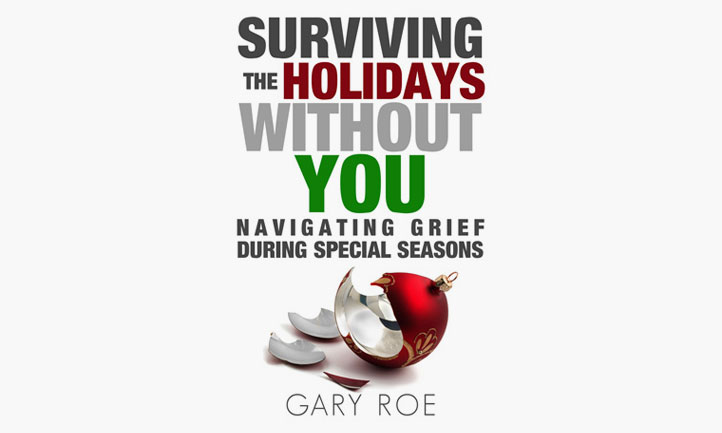Book Review: “Surviving the Holidays Without You”
Author: Cheryl Kreutter
The holidays may be particularly difficult for those grieving a loss of a loved one. Hospice chaplain Gary Roe’s “Surviving the Holidays Without You: Navigating Grief During Special Seasons” offers readers ways to cope by sharing insights he has gained during his own grief journey. In simple narrative form, Roe recounts the special days such as birthdays, Thanksgivings, Christmases, wedding days and anniversaries when his grief was especially sharp. He acknowledges there were times when he felt isolated, lonely, vulnerable and deeply sad. From these experiences and his 30-year work history in ministry, he has developed insights about surviving the holidays that may offer hope to his readers.

He provides readers a roadmap to the text with these “grief truths and tools”:
- Holidays are hard. Period.
- This year’s holidays will be different, but they can still be good.
- Alone time is good. Isolation can be dangerous.
- For the holidays to go well, you must take your heart seriously.
- You get to choose what you do, when and with whom.
Building on these “truths and tools,” each chapter starts with a line or two meant to encourage readers to take an active role in managing their grief by voicing or writing ways they can approach the holidays. Chapter one begins with “Even with my loss, this holiday can still be good. I’ll begin by managing my own and others’ expectation.” Chapter two offers, “Safe people will help me stay grounded and sane. I will find and treasure them.” These remarks set the stage for deeper exploration of how one might approach surviving the holidays. Throughout the text are other adages that readers may embrace. One that stands out is “The grief you feel is part of saying ‘I love you’ to the one you’ve lost.”
Thought-provoking questions are included at the end of each chapter with space to jot responses. These are useful for reflecting on the past chapter and developing a mindset for upcoming chapters. In “How to Make Wise Choices,“ chapter five, the author asks the reader to “Make a list of your typical holiday activities. Label them according to whether they are traditions, obligations, habits or want-tos. Does anything strike you about your list?” These questions encourage readers to categorize and examine what can be realistic expectations of themselves. Roe also cautions readers to avoid “The Santa Syndrome;” that is, believing that “perhaps if you give, give, give, you can escape the pain.” He offers this advice instead: “Guard your heart and don’t get sucked into attitudes and activities that are not healthy for you right now.” Finally, honoring loved ones during the holidays starts with identifying what they loved and what you loved about them. Making adjustments to holiday traditions does not mean you are leaving loved ones behind. Rather you are taking the power into your hands by finding creative and healthy ways to move on with them.
While there are religious references near the very end of the text, they are minimal and nonintrusive. The sage advice of the author, his open and easy-to-read style, and his gentle reminders to take care of oneself will be applicable to any audience.
From the pen of…
Cheryl Kreutter, Ph.D., is an Associate Professor at SUNY Geneseo where she pursues research on the usefulness of reading and writing to open conversations about difficult topics such as grief. She, her husband Paul and children, Jennifer Conrad and Navy Lt. Adam Kreutter, are surviving family members of Navy Lt. Jason P. Kreutter.
